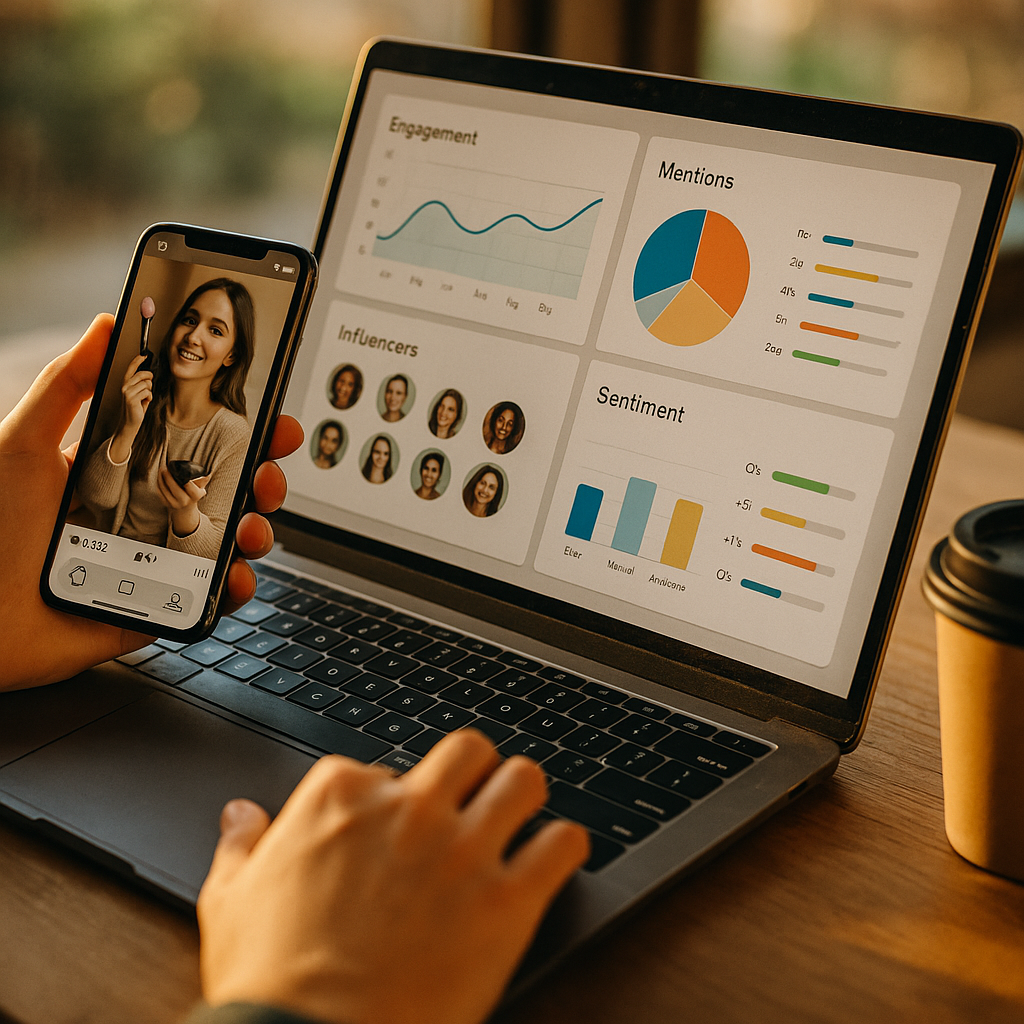Social media monitoring tools for influencer campaign tracking are essential for brands looking to measure, optimize, and maximize their influencer marketing returns. In today’s saturated digital landscape, having deep campaign insights is your competitive edge. Discover how these cutting-edge platforms transform influencer strategies and ensure your collaborations deliver measurable results and real ROI.
Why Accurate Influencer Campaign Tracking Is Crucial
In 2025, influencer marketing remains a core growth strategy—but without reliable influencer campaign tracking, brands risk wasted investment and missed opportunities. Tracking enables marketers to:
- Understand true ROI: Measure real impact, not just estimated reach.
- Spot top performers: Identify which influencers drive conversions and engagement.
- Optimize in real time: Adjust campaigns mid-flight for better results.
- Safeguard brand reputation: Monitor for off-brand influencer activity or negative sentiment.
With influencer budgets projected to exceed $35 billion globally in 2025 (according to Statista), even minor optimization can boost campaign impact and stretch budgets further. Social media monitoring tools ensure you invest wisely by providing timely, actionable data.
Key Features Brands Need in Social Media Monitoring Tools
Choosing the right social media monitoring tool is pivotal for effective influencer campaign tracking. Look for platforms that offer:
- Real-time analytics: Get instant data on reach, engagement, conversions, and trending content.
- Cross-platform tracking: Monitor influencer efforts across Instagram, TikTok, YouTube, X (formerly Twitter), Facebook, Threads, and emerging networks.
- Advanced sentiment analysis: Use AI-powered tools to gauge public perception and emotional response.
- Influencer verification: Detect fake followers, engagement fraud, and ensure authenticity.
- Customizable reporting: Build clear, branded campaign reports for stakeholders at any stage.
- Competitor benchmarking: Compare your influencer performance with industry leaders.
By selecting tools with these attributes, brands capture both granular and holistic views of their influencer efforts, enabling smarter decisions at every stage of their campaigns.
How Social Media Analytics Platforms Support Influencer Partnerships
Reliable social media analytics platforms go far beyond vanity metrics. They empower brands and agencies to:
- Identify the right influencers: Discover partners whose audience aligns with your goals using AI-powered match algorithms.
- Negotiate fair rates: Use performance and market benchmarks to guide influencer compensation.
- Maintain compliance: Automate disclosure tracking and regulatory reporting, critical in 2025 with updated global guidelines.
- Streamline collaboration: Centralize communications, briefs, and feedback for seamless influencer relationships.
Successful influencer campaigns are built on trust and data-driven transparency—qualities leading analytics platforms are designed to foster. With unified dashboards and automated workstreams, both brand managers and influencers benefit from clearer expectations and faster feedback loops.
Emerging Trends in Influencer Campaign Tracking Tools
The landscape for influencer tracking tools is evolving rapidly, driven by new technologies and shifting consumer behavior. In 2025, some key developments shaping influencer campaign tracking tools include:
- Ethical AI: Tools leverage explainable AI for audience quality scoring—minimizing bias and maximizing transparency.
- Deeper attribution models: Multi-touchpoint tracking connects influencer activity to sales, app installs, and even offline action.
- Collaborative analytics: Shared workspaces enable agencies and clients to co-create and interpret campaign data.
- Sustainability insights: Specialized modules now track influencer support for ESG (environmental, social, governance) objectives.
- Creator economy integration: Direct links to creator marketplaces and rewards platforms streamline campaign delivery.
Brands harnessing these innovations will be well-placed to navigate influencer marketing’s expanding role in purchase journeys and brand building—and to demonstrate value to increasingly ROI-focused executives.
Best Practices for Selecting and Implementing Influencer Monitoring Solutions
To maximize the impact of your influencer monitoring solution, follow these expert-backed tips:
- Set clear objectives: Define upfront what success looks like—reach, engagement, conversions, or reputation shifts.
- Prioritize privacy and compliance: Select tools with GDPR, CCPA, and other data protection features.
- Pilot and integrate: Trial shortlisted platforms before full rollout; ensure they fit your workflow and tech stack.
- Onboard your team and partners: Run training sessions so teams can fully leverage analytics capabilities.
- Iterate based on insights: Use data from early campaigns to fine-tune your approach, influencer roster, and content strategy.
Above all, choose solutions with robust customer support, proven industry expertise, and a clear product roadmap to keep your brand’s capabilities future-proofed.
Conclusion: Empower Influencer Success With the Right Monitoring Tools
Social media monitoring tools for influencer campaign tracking are indispensable for modern brands seeking evidence-based results from their partnerships. By choosing platforms with advanced analytics, cross-channel capabilities, and transparent reporting, you’ll unlock smarter campaigns, stronger influencer relationships, and measurable growth in 2025’s competitive digital ecosystem.
FAQs: Social Media Monitoring Tools for Influencer Campaign Tracking
-
What are social media monitoring tools for influencer campaigns?
These are software platforms that track, analyze, and report on influencer marketing performance across various social channels, helping brands measure reach, engagement, sentiment, and ROI.
-
How do these tools detect influencer fraud?
They use AI algorithms to flag suspicious follower spikes, non-authentic engagement, and unusual activity by comparing influencer profiles against broader benchmarks and trends.
-
Can monitoring tools track sales and conversions from influencer posts?
Yes. Many modern tools provide attribution features connecting influencer content directly to web traffic, conversions, app downloads, or other business objectives using UTM links, promo codes, or pixel-based tracking.
-
Are there affordable options for small businesses?
Absolutely. Many platforms now offer tiered pricing or pay-as-you-go models, enabling startups and SMBs to access core tracking features without committing to costly annual contracts.
-
How can brands ensure data privacy when using these tools?
Brands should select tools that are compliant with GDPR, CCPA, and SIMILAR frameworks, and regularly review how data is collected, processed, and stored, ensuring transparency to both influencers and audiences.
